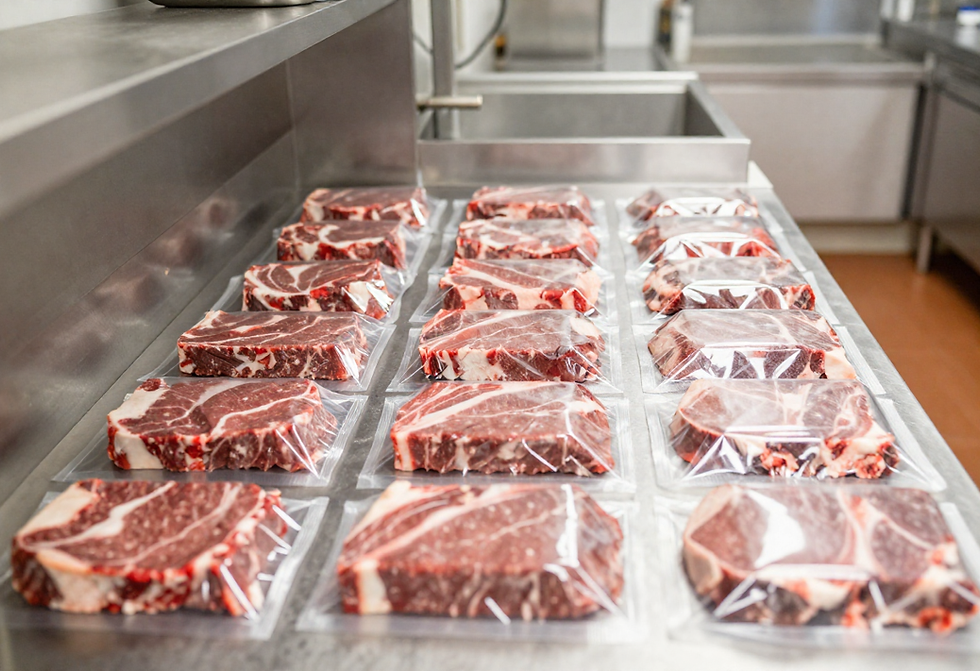From Carcass to Cutlet: Understanding Whole Animal Buying
- Jul 6, 2025
- 2 min read

There’s a growing trend in Australian kitchens and butcheries: whole animal buying. It’s sustainable, cost-effective and lets you use every part of the beast — but it also requires skill, planning, and the right setup.
Here’s what wholesale buyers need to know before taking the plunge from boxes of steaks to full sides of beef, pork or lamb.
Why Buy Whole Animals?
Better value per kilo
Custom butchering options
Use everything — less waste
Great for nose-to-tail menus and artisan butchers
Supports ethical, local farming
What to Expect When You Order a Whole Side
Weight: A side of beef might weigh 120–140kg (bone-in).
Cuts: You’ll receive all primal sections — chuck, loin, brisket, round, etc.
Processing: Some suppliers will break it down to your spec; others will provide whole primals.
Make sure you have the space, equipment, and skill (or a trained butcher) to break it down properly.
What You’ll Need
Walk-in cold storage
Sharp, clean butchering tools
Accurate scales
Staff trained in food safety and meat handling
Vacuum sealers for portioning and freezing
Tips for Getting the Most from Whole Animal Buying
Plan your menu around the animal, not the other way around. Use steaks, sausages, stews, stocks, and offal.
Rotate cuts in specials to keep inventory moving.
Build strong supplier relationships for consistent quality and custom cut specs.
Is It Right for You?
Whole animal buying works best for:
Restaurants with seasonal menus
Artisan butchers
Catering companies that batch cook
Venues with high-volume, varied meat usage
If you’re running a small kitchen with limited space or low prep staff, portion-controlled wholesale cuts may be a better fit.
Want to explore whole-animal supply without the overwhelm? We offer custom breakdowns, expert portioning, and advice for chefs who want to buy smarter. Contact A La Carte Meats to talk through your options.




